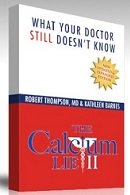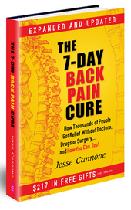|
Nuclear Radiation Effects can be
Minimized With Minerals and Antioxidants
On this page I will include more about how to counteract nuclear radiation effects, specifically for the radioactive isotopes that come with it. I wrote an article about protecting yourself from radiation shortly after the March 2011 Fukushima nuclear disaster. We are now over 2 1/2 years later but I thought I would add more information because the disaster may not be over yet. While we hope that everything will go well and releases of radioactivity will decrease, there is still considerable danger that the situation could get worse - much worse.
This page contains more information about possible nuclear radiation effects and what can be done about it.
The Mineral Connection
In my earlier article, I mentioned that potassium iodide (KI) can protect against radioactive iodine. The protection is obtained by making sure you (specifically, your thyroid gland) has plenty of good iodine to reduce the likelihood of it taking up radioactive iodine. The same principle - having enough of necessary minerals in your body will help to reduce uptake of the radioactive ones.
The radioactive iodine (Iodine-131) has a half life of only 8 days. That means that any sample of iodine will lose half of its radioactivity within 8 days and iodine therefore is not a great long-term threat especially when we are so far from the source. However, there are other radioactive isotopes that are more dangerous and much longer-lasting. In this article, I will touch on what can be done to reduce the damage from specific radioactive materials and discuss a little about antioxidants.
Cesium-137 can be a big threat to human health over many decades. With a half-life of 30 years it takes over 200 years to reduce it to 1% of its original level. It is cesium-137 that still contaminates much of the land around the Chernobyl site. The U.S. Environmental Protection Agency says that, once dispersed in the environment, cesium-137 is impossible to avoid. It mixes easily with water and is light enough to be carried long distances by the wind. Cesium is chemically similar to potassium and is treated like potassium by our bodies. The body absorbs it and uses it like it would potassium, depositing it in our muscles, heart and other tissues. So having enough potassium will help to decrease the absorption of radioactive cesium.
Plutonium is treated like iron by our bodies so getting enough iron will help reduce plutonium absorption. This is a little trickier as excess iron can cause its own problems.
Strontium is chemically similar to calcium (it is directly below calcium on the periodic table). Our bodies will take up radioactive strontium-90 and deposit it into our bones as if it were calcium. If we are short of calcium, then our calcium-hungry bodies will more quickly absorb strontium and hang on to it. However, if we’re getting enough calcium, our bodies won’t accumulate as much strontium.
Get Enough Minerals So you can see that it is important to maintain a good supply of minerals and avoid deficiencies of calcium, potassium, iron and magnesium. Magnesium provides important protection against nuclear radiation effects, is essential for absorption of calcium and potassium and helps protect your heart and other body tissues.
What about Antioxidants?
As the Journal of Clinical Biochemical Nutrition noted in 2007:
"The results obtained from in vitro [means in glass - think test tube] and in vivo [in living organisms] studies indicate that several botanicals such as Gingko biloba ... Hippophae rhamnoides [sea buckthorn] ... Panax ginseng, [ginseng] ... Mentha piperita [peppermint] ... protect against radiation-induced lethality, lipid peroxidation and DNA damage."
These plants and many others protect because they are potent antioxidants which counter the free-radical damage that radiation causes. Here are some other plants proven by science to have antioxidant properties that can mitigate nuclear radiation effects.
Curcumin, the active ingredient in turmeric, can be very beneficial.
"Curcumin has been shown to exhibit growth inhibitory effects and induce apoptosis in a broad range of tumors." (Cancer Biol Ther. 2008 Apr 7(4):569-76)
Milk thistle
"In conclusion, the present study indicated that silibinin [an active ingredient in milk thistle] has a strong potential to prevent radiation-induced DNA damage under both in vitro and in vivo." (Mutat Res. 2010 Jan; 695(1-2):55-60)
The thiol family of antioxidants, such as N-acetyl cysteine, glutathione and thioproline. A common example is the herb oregano which contains a powerful antioxidant; 1teaspoon of oregano is equivalent in antioxidants to 1 cup of fresh blueberries. We grew several bee balm plants over the summer in our flower bed before finding out that they contain about as much of the same active ingredients as oregano.
The good news is that there are many potent antioxidants that can help fight free radicals and help protect us from low-level radiation. Thankfully, you can do a lot to protect yourself by maintaining your mineral levels and using a variety of antioxidants.
In Japan, slightly more drastic action is required. They are going as far as marketing anti-radiation underwear (provides coverage top and bottom like long johns) made from a lead-based fabric. To carry around 7.5 lb just for your underwear to get some protection from the damaging effects of gamma ray exposure may be a tough choice. But if radiation levels spike some people will be lead to make that heavy decision.
|
Keep up to date with
valuable insights into
pain management via
a healthy lifestyle.
Receive the monthly
Natural Pain Relief
Guide Newsletter.
News articles, health
tips, specials, freebies.
Enter your email and name
in the form to the right.
|
|
|








New! Comments
Have your say about what you just read! Leave me a comment in the box below.